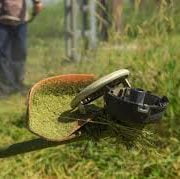Ticks are as disgusting as they are dangerous. If you have a yard, you likely share a special hatred for these parasites, especially during the summertime. Ticks are extremely notorious and can cause a whole lot of problems. From skin irritation to Lyme disease or tularemia, ticks carry viruses that spread serious diseases.
There are several ways to tackle this troublesome. Chemical pesticides work just fine, but plants that repel ticks are also gaining popularity among garden owners. The problem with such plants is that not all of them effectively keep ticks at bay all year round.
Many serve the purpose only when they are in bloom. But worry not. Under such circumstances, there exists a simple home remedy that you can employ to save yourself and your beloved pets from these parasites.
Vinegar To Your Pets’ Rescue

This sour, pungent ingredient works wonders on garden pests. Ticks particularly hate its strong smell. Hence, although vinegar might not work as a tick-killer, it helps in driving them away. Ticks get under your skin, literally.
And not just yours, but your pets’, too. If your dog’s fur has been taken over by ticks, you can dab small amounts of apple cider vinegar onto a cloth and run it across the body. Ticks are likely to get repulsed by the smell and come out of hiding from under the fur.
[amazon box=”B007SZ28NC”]You can then pick these nuisances out using a pair of tweezers and flush them down the drain. However, make sure that you do not apply an excess of vinegar to the animal’s coat. After all, this liquid is primarily made up of acetic acid. Too much exposure to it can affect the fur and skin.
How To Use Vinegar in The Garden
Tall grass and an abundance of moist areas in the yard are both conducive to the growth of ticks. But mowing the land regularly is never enough to keep them away, as most of you would agree. As mentioned earlier, ticks hate the intense, pungent scent of vinegar.
Gardeners can put this fact to good use by keeping a spray bottle full of diluted vinegar handy. Mix equal parts of water and vinegar and spray this solution across the lawn. Ticks are bound to stay away from the grass owing to the strong, lingering smell of the solution.
Undiluted vinegar is also effective at repelling ticks. You can leave cotton balls soaked in vinegar around the yard. Be careful not to expose plants to concentrated vinegar, though. It might kill them.
Vinegar On Garden Clothes

As we know, ticks directly affect humans, too. Therefore, it makes sense to tweak your gardening outfits so that ticks do not get to your skin. Long-sleeved clothing is advisable while working in the yard. To strengthen the protection against said parasites, you can spray some vinegar onto the clothes.
Like a vinegar solution for the lawn, vinegar can be mixed with citronella essential oil. A drawback of this solution is that although it repels ticks, felines hate its smell as well. Consequently, one cannot rely on this solution if they wish to have a tick-free snuggle time with their cats in the garden.
An alternative to spraying the entire outfit with vinegar is that you can soak a piece of cloth in the solution and tie it around your ankles and wrist while working in the garden. This way, you can wash off the smell from your hand and feet when you are back in the house.
Thus, vinegar is an inexpensive, easy alternative for garden owners to tackle the serious problem of parasites such as ticks. Instead of going for full chemical treatments, gardeners can use a combination of vinegar solutions and plants that repel ticks to fortify their yard against these hazardous pests.














Comments